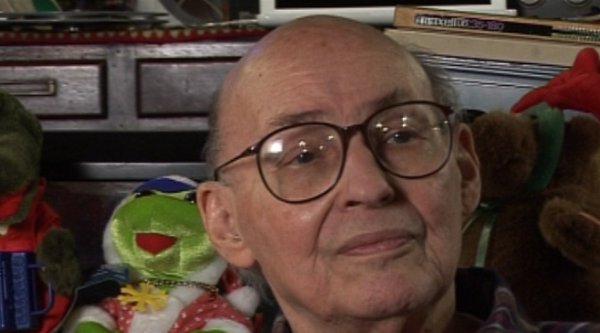NEXT STORY

The Harvard Society of Fellows 'like a rotary club'
RELATED STORIES

NEXT STORY

The Harvard Society of Fellows 'like a rotary club'
RELATED STORIES


|
Views | Duration | |
|---|---|---|---|
| 31. The small math community at Princeton | 1 | 1569 | 01:44 |
| 32. The Harvard Society of Fellows 'like a rotary club' | 1263 | 01:06 | |
| 33. My opinion of Noam Chomsky's theories | 3 | 4066 | 01:19 |
| 34. Donald Hall and John Hollander at Harvard | 1054 | 01:00 | |
| 35. The Society of Fellows was a wonderful environment | 1005 | 00:57 | |
| 36. Problems with new theories of psychology | 1123 | 02:10 | |
| 37. Inventing the confocal microscope | 1219 | 03:37 | |
| 38. Oliver Selfridge's work at Lincoln | 936 | 02:07 | |
| 39. Modelling my recruitment policy on Oliver Selfridge's lab | 1 | 952 | 01:45 |
| 40. The hacker community | 1 | 1155 | 01:14 |


There wasn’t such a community… I was at Princeton from 1951 to '54, and I was part of a community that indeed met every day, pretty much, because in the math department at Princeton there was a common room, and the total number of students was rather small; they admitted maybe six or seven per year, and people would stay four or five years or more, so there was maybe 30 graduate students and 10 professors, which was a rather remarkable ratio, and so almost all the students knew almost all the other students and professors, and we almost all were hanging around this common room which was fairly big, and every day, pretty much.
And I would spend most of my time talking to John Nash and Lloyd Shapley and Martin Shubik and Herb Forrester and three or four other mathematicians with different interests, and some of the professors, and when something came up we would talk about it; and then the next day or two, somebody might have made some real progress, or everybody decided it was a waste of time, and... so that was a small community.
Marvin Minsky (1927-2016) was one of the pioneers of the field of Artificial Intelligence, founding the MIT AI lab in 1970. He also made many contributions to the fields of mathematics, cognitive psychology, robotics, optics and computational linguistics. Since the 1950s, he had been attempting to define and explain human cognition, the ideas of which can be found in his two books, The Emotion Machine and The Society of Mind. His many inventions include the first confocal scanning microscope, the first neural network simulator (SNARC) and the first LOGO 'turtle'.
Title: The small math community at Princeton
Listeners: Christopher Sykes
Christopher Sykes is a London-based television producer and director who has made a number of documentary films for BBC TV, Channel 4 and PBS.
Tags: 1951, 1954, Princeton University, John Nash, Lloyd Shapley, Martin Shubik, Herbert Forrester
Duration: 1 minute, 44 seconds
Date story recorded: 29-31 Jan 2011
Date story went live: 09 May 2011